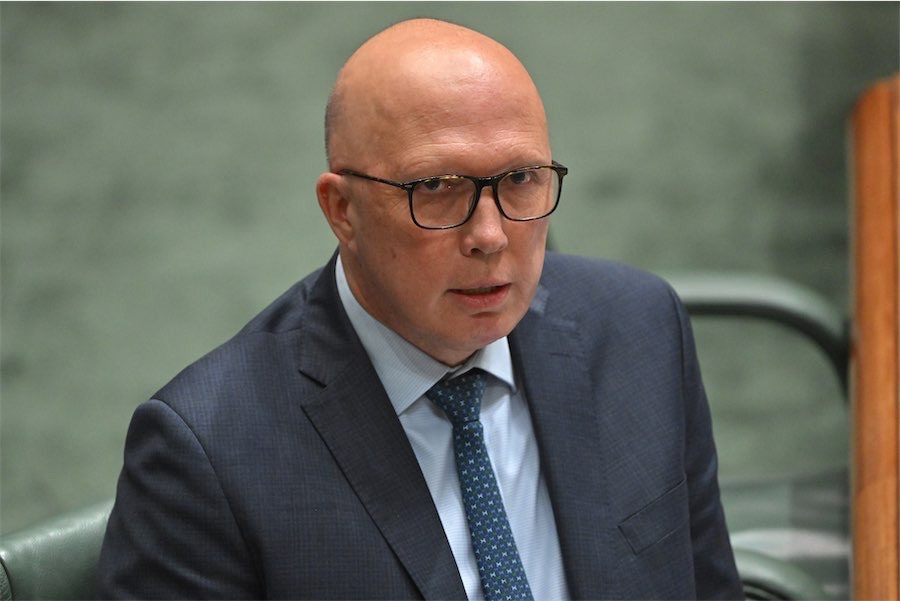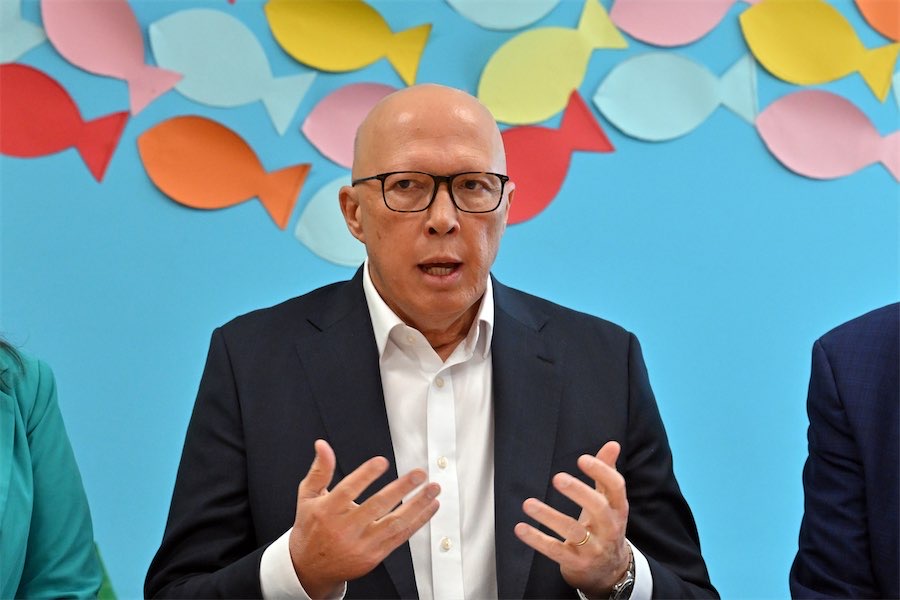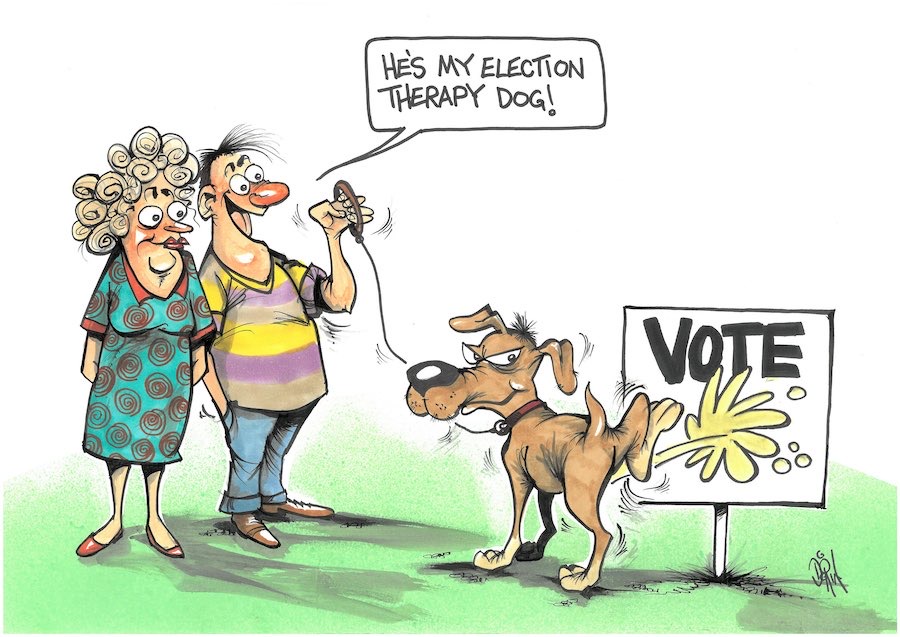
Peter Dutton says Labor is pushing Australia ‘over an energy cliff’ as he talks up nuclear, writes political columnist MICHELLE GRATTAN.
Opposition leader Peter Dutton claims Labor’s policy is pushing Australia “over an energy cliff”, with the outlook a decade from now “dire”.
In a Wednesday speech released ahead of delivery, Dutton once again talks up his nuclear option ahead of a policy he will release before the May budget.
He says the government’s “renewables only” approach is “an engineering feat of pure fantasy”.
“There is zero chance of this roll-out being completed. And yet the government is switching off the old system before the new one is ready. Indeed, some 90 per cent of baseload power will exit the system by 2034.”
Dutton says businesses are already being asked to reduce their energy use in the afternoons to prevent overload on the network.
“No other developed country is inflicting this same energy self-harm.”
A renewables-only approach hasn’t worked anywhere in the world, Dutton says. Moreover, despite the roll-out of renewables, emissions are not coming down, he says.
“Under its current approach, the government can’t credibly meet its 2050 net zero emissions target.”
Dutton says despite Anthony Albanese’s talk about boosting manufacturing and creating jobs, businesses are going offshore.
“We will end up having to import commodities and products from overseas at a much higher price. And there will be far more emissions from producing these commodities and products abroad than would have been the case under our clean industry practices. In short, there is no net benefit to the environment.”
Dutton says to boost cheap and clean power a Coalition government would ramp up gas production and move Australia to adopting the latest nuclear technologies.
“With nuclear, we can maximise the highest yield of energy per square metre and minimise our environmental footprint.” he says.
“A Rolls-Royce two hectare, 470 megawatt nuclear small modular reactor delivers the same output as 4000 hectares of solar panels.”
Dutton in his speech – to be made to a small business conference – berates business executives and chairs who tell him in private that they are frustrated with the government while holding their tongues in public.
“In public their comments lack the same vigour, or they choose to remain quiet – many from the fear of a social media backlash.”
Dutton says in office, the Coalition would wind back excessive government intervention, remove regulatory roadblocks, and simplify the industrial relations system.
It would remove “the complexity and hostility brought back by Labor at the behest of its union paymasters”.
Earlier this week, Energy Minister Chris Bowen said the Coalition had been “flim-flamming around for the last 18 months” on its nuclear policy. “We’ve been rolling out policies in that time. It’s time for Mr Dutton to get on with it and announce the full details of this nuclear fantasy.”
Germany signs off on $1 billion defence deal
Meanwhile, the Albanese government has secured a $1 billion previously-announced deal for Germany to buy more than 100 Australian-made Boxer heavy weapon carrier vehicles to help it re-arm after Russia’s invasion of Ukraine.
The vehicles will be built at the Rheinmetall Defence Australia centre of excellence at Redbank in Queensland.
The agreement, touted as the single largest defence export agreement in Australia’s history, was initiated last year and has now been endorsed by the German parliament.
Treasurer Jim Chalmers said next month’s budget would have a big emphasis on the defence industry and manufacturing jobs and a “future made in Australia”.
“This is how we secure our prosperity into the future at the same time as we are attending to our national security needs and concerns,” he said.
Chalmers concerned about fall in iron ore price
Chalmers also said he was “quite concerned” about the fall in the iron ore price, which has strongly boosted revenue in recent budgets.
“When I looked on Thursday it was $US91 a tonne,” he said. “It was $US130 a tonne at the start of the year, so it’s fallen by about a third this calendar year.”
“There’s no use pretending it doesn’t have an impact on the budget bottom line.”
The forecasts in last year’s budget assumed the iron ore price would fall from the then average of $US117 to $US60 a tonne over the course of the year.
“There’s always a premium on responsible economic management,” Chalmers said. “But I think particularly with this one, which is probably a bit harder to land than the first two, because we’re not getting the same kind of revenue upgrades, the balance of risks in the real economy has shifted and is shifting.
“So we will spend the bulk of the next six weeks making sure that we strike all the right appropriate balances, we deliver a responsible budget which is still focused primarily on inflation but recognises we’ve got a growth challenge as well.”
The budget will have only modest revenue upgrades.
Chalmers reiterated the previously-announced reworking of the so-called Stage 3 tax cuts would be the centrepiece of cost-of-living relief in the budget.
But the government had previously said it was “prepared to consider some of these other cost-of-living measures if we can afford to do it in a responsible and in a meaningful way”.![]()
Michelle Grattan, Professorial Fellow, University of Canberra. Republished from The Conversation.
Who can be trusted?
In a world of spin and confusion, there’s never been a more important time to support independent journalism in Canberra.
If you trust our work online and want to enforce the power of independent voices, I invite you to make a small contribution.
Every dollar of support is invested back into our journalism to help keep citynews.com.au strong and free.
Thank you,
Ian Meikle, editor








Leave a Reply